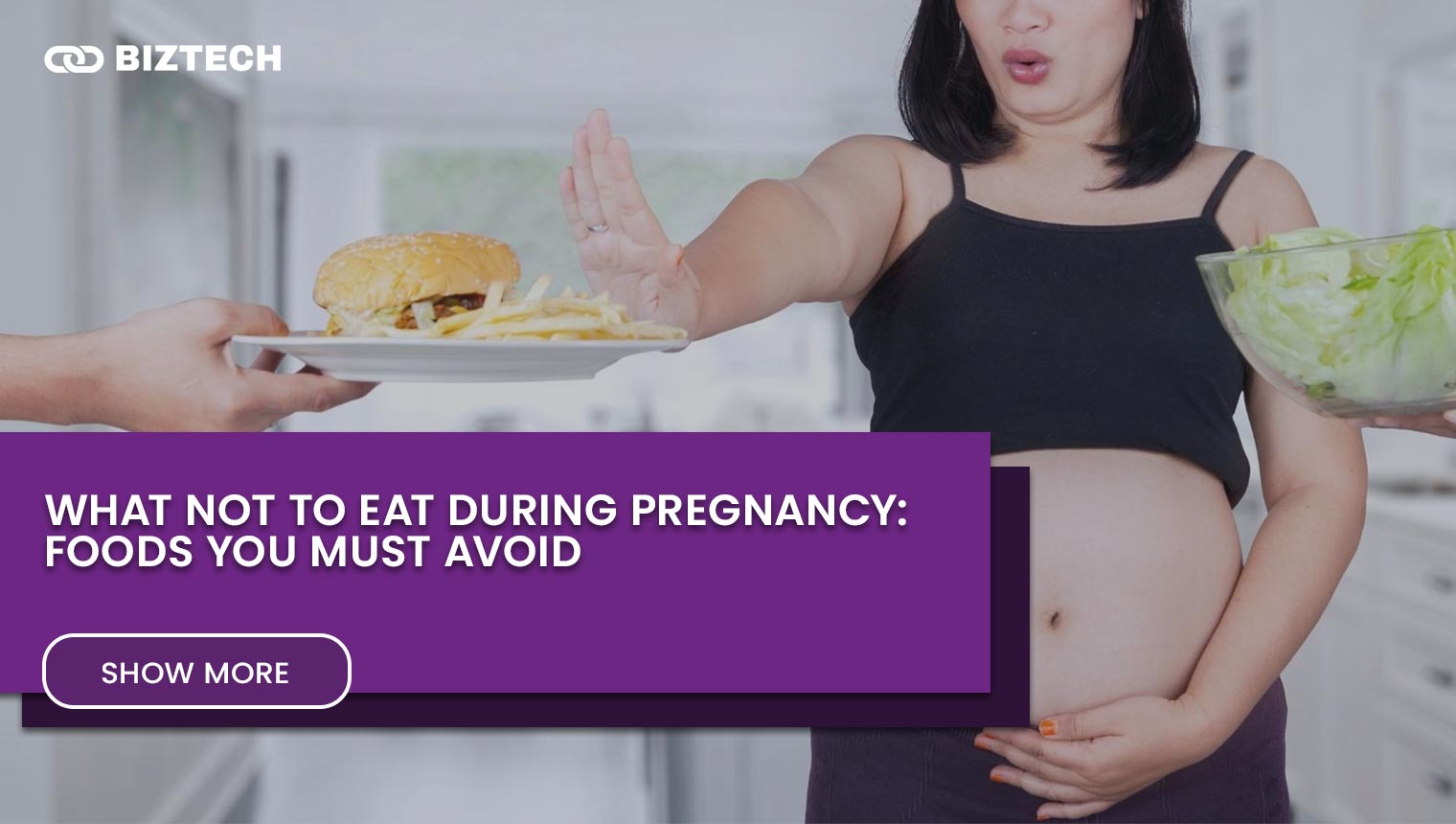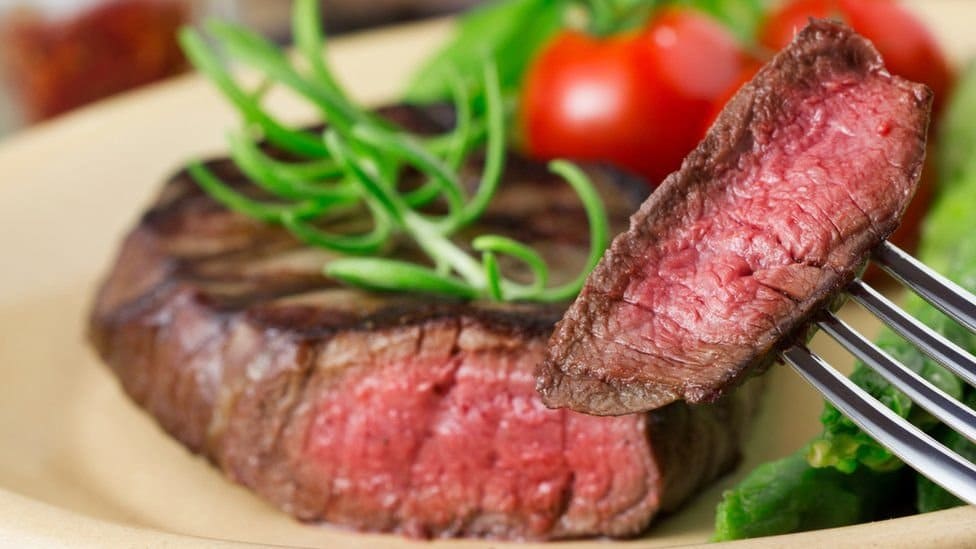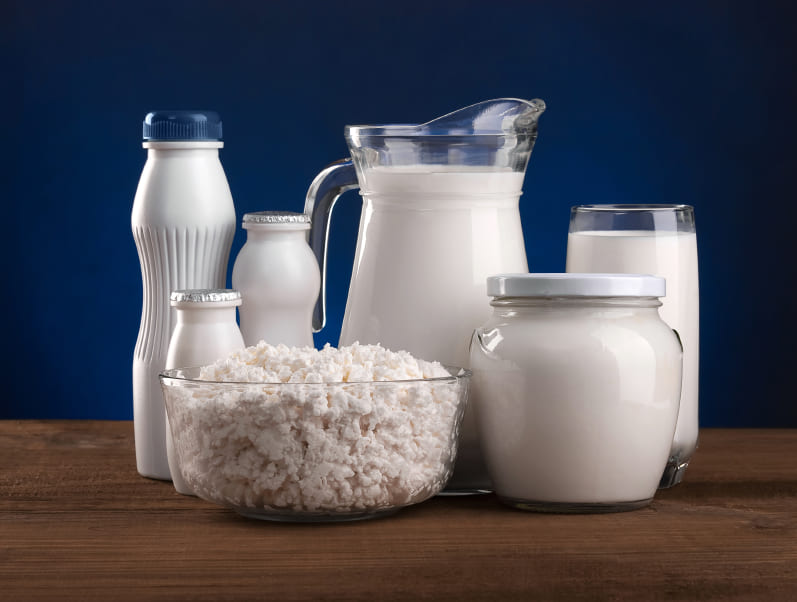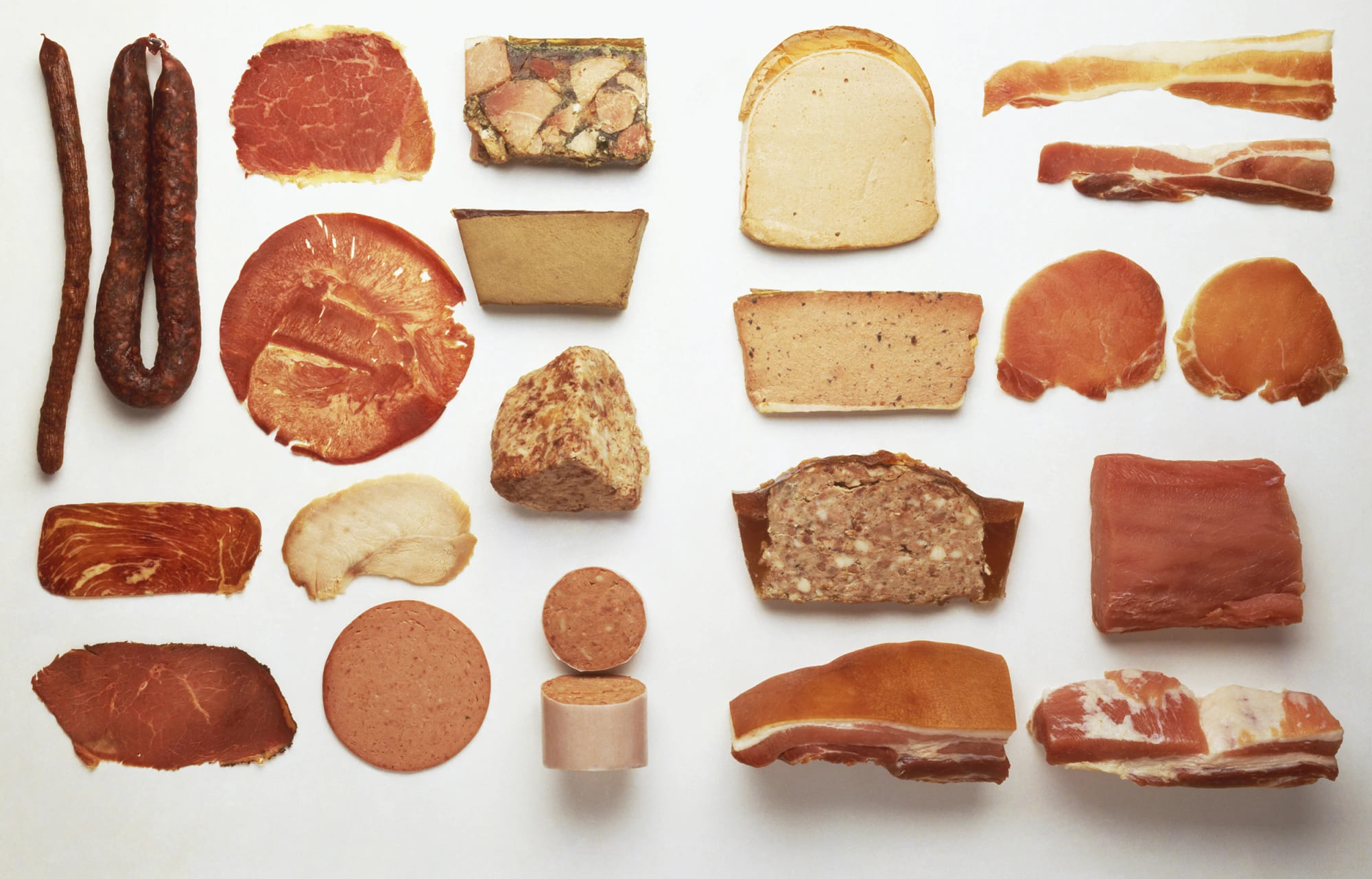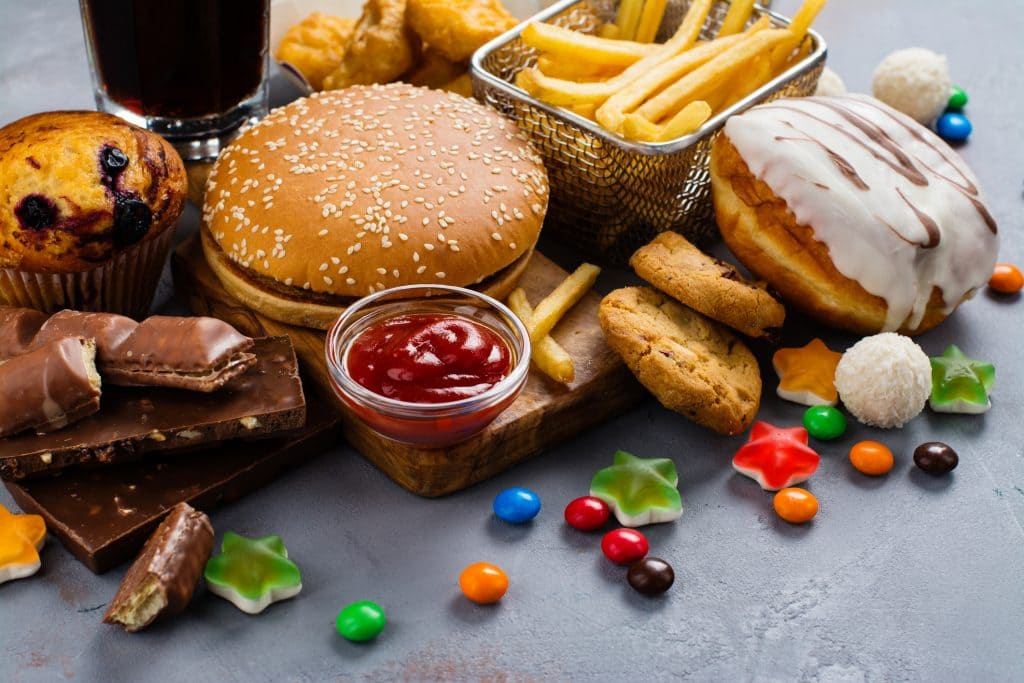Knowing which foods to avoid during pregnancy is crucial for you and your baby. Some foods carry many risks, including bacteria, high levels of mercury, and other unsafe substances. This guide will provide details on what to avoid during this vulnerable period.
Table of Contents
1. Raw and Undercooked Meat
Raw or undercooked meats may contain harmful bacteria, including Listeria, Salmonella, and Toxoplasmosis. These bacteria can all cause foodborne illness, which is of concern not only for yourself but also for the developing health of your baby.
So here is a blow-by-blow of the risks:
- Listeria: This bacterium is capable of causing a severe infection, and the pregnant woman may experience mild symptoms like fever, muscle aches, and chills. It can be potentially devastating for the newborn—when, in some cases, as it runs its course, it can lead to the death of the newborn. It can also lead to spontaneous abortion, miscarriage, stillbirth, or prematurity.
- Salmonella: This bacterium is one more player in the game of causing foodborne illness. It is accompanied by unwanted symptoms of diarrhoea, vomiting, and fever. The worst it can do is severe dehydration, which could affect pregnant women.
- Toxoplasmosis: The most concerning of all parasites in the case of pregnancy, especially among primigravida, is infection with this parasite. Infection with this parasite can pass to the growing fetus to cause congenital disabilities like blindness, deaf-muteness, and intellectual disability.
Avoid these risky foods to keep yourself and the baby safe. A classic example is undercooked meat, such as a rare steak, but all undercooked meats, including burgers and poultry, should be avoided.
Although raw, finely chopped meat is generally safe at a cooked stage, it is not likely to have bacterial contamination as quickly as in whole cuts. Choose commercially pre-cooked chopped meat products or cook until the meat is no longer pink before or after processing.
2. Raw Eggs
We all know that breakfast isn’t without the perfect running egg. Okay, almost all of us. When you are pregnant, you should not eat undercooked or raw eggs because you could get Salmonella.
This bacteria can cause food poisoning, an illness that introduces unpleasant symptoms like diarrhoea, vomiting, and fever; however, these symptoms, if not very pleasant for you, are more threatening to your growing baby.
Raw eggs may contain Salmonella, so preparations made from raw eggs should be avoided. Such preparations include homemade Hollandaise sauce, Béarnaise sauce, Caesar salad dressing, and any other preparation made with raw or undercooked eggs.
And there are raw eggs in even some of these, one would think, innocent desserts. To think that this rich, fluffy mousse or delicious tiramisu is full of raw eggs. If something else is not clear with an ingredient, of course, you can use something else.
3. Certain Seafood and Fish
Seafood can be a wonderful source of protein and healthy fats during pregnancy. However, some fish can contain high levels of mercury—a serious metal that causes harm to the nervous system development of a baby. Big predatory fish, such as sharks, swordfish, and king mackerel, accumulate a lot of mercury, and it would be best to avoid them altogether.
But the danger is not just in the mercury. Cooking can kill dangerous bacteria and parasites lurking in many kinds of seafood. So, that enticing plate of sushi or those raw oysters on the half-shell will have to wait until after the baby is born.
4. Unpasteurized Dairy Products
While cheese can be part of a healthy pregnancy diet, some varieties should be avoided due to the risk of Listeria infection. This bacteria can cause serious illness, including miscarriage, stillbirth, or premature birth.
Listeria can thrive in unpasteurized dairy products, which haven’t been heat-treated to kill harmful bacteria. This means some of your favorite soft cheeses, like brie, camembert, certain blue cheeses, and queso fresco, might be risky during pregnancy.
So, how can you enjoy cheese safely? The key is to choose pasteurized options. Pasteurization is a process that heats milk to a high temperature, eliminating harmful bacteria like Listeria. Look for “pasteurized” on the label when buying cheese or other dairy products.
5. Processed and Deli Meats
We all crave the convenience of pre-made lunches sometimes, but during pregnancy, it’s essential to be mindful of deli meats and processed lunch options. These can be breeding grounds for Listeria bacteria, the culprit we mentioned with unpasteurized dairy products.
Listeria can cause serious illness in pregnant women, potentially leading to miscarriage, stillbirth, or premature birth.
There are ways to enjoy these foods safely. The key is to heat them until steaming hot. This internal temperature (at least 165°F or 73.9°C) is crucial for killing any Listeria present. So, next time you’re craving a deli sandwich, heat the meat thoroughly before taking a bite.
Here are some additional safety tips for enjoying processed meats during pregnancy:
- Purchase pre-packaged meats from reputable sources.
- Check the “use by” date and avoid meats nearing their expiration.
- Reheat leftovers until steaming hot within two hours of cooking.
- Consider healthier alternatives like freshly roasted chicken or turkey breast.
By following these tips, you can minimize the risk of Listeria contamination and still enjoy some of your favorite deli meats occasionally during pregnancy.
6. Certain Fruits and Vegetables
Fruits and vegetables are essential for a healthy pregnancy diet, but there are a few things to remember regarding these seemingly safe options.
Raw sprouts, like alfalfa and radish sprouts, can be contaminated with bacteria like Salmonella and E. coli. These bacteria thrive in the warm, humid conditions needed for sprouting. While the risk of illness is generally low, it’s best to avoid raw sprouts altogether during pregnancy to be safe.
Washing all fruits and vegetables thoroughly removes dirt, bacteria, and parasites lingering on the surface. A simple rinse under running water can significantly reduce the risk of contamination.
Pre-packaged, pre-washed salads seem convenient and healthy but can also harbor bacteria. The packaging can trap moisture, creating an ideal environment for bacterial growth. Additionally, pre-cut produce has a larger exposed surface area, increasing the risk of contamination during handling and storage.
Here’s how to make the most of your fruits and vegetables during pregnancy:
- Wash all produce thoroughly under running water, even if you plan to peel it.
- Consider using a vegetable brush for scrubbing firm produce like melons or potatoes.
- Dry fruits and vegetables with a clean paper towel to minimize the risk of bacteria growth.
- If you’re unsure about the safety of pre-washed salads, opt for whole fruits and vegetables, which you can wash yourself.
7. High-Caffeine Foods and Beverages
Coffee, tea, even that dark chocolate bar – all these delicious treats contain caffeine, a stimulant that might be best enjoyed in moderation during pregnancy. While the research isn’t entirely conclusive, excessive caffeine intake has been linked to potential risks like miscarriage and preterm birth.
To be on the safe side, most healthcare providers recommend limiting caffeine intake to 200 milligrams (mg) per day during pregnancy. That’s roughly equivalent to one cup of brewed coffee (around 8 ounces).
Here’s a breakdown of caffeine content in some common beverages and foods:
- Coffee (8 oz): 95 mg
- Black tea (8 oz): 47 mg
- Soda (12 oz): 30 mg
- Dark chocolate (1 oz): 12 mg
8. Alcohol
There’s no ifs, ands, or buts about it – alcohol is simply not safe to consume during pregnancy at any stage. When you drink alcohol, it passes through your bloodstream and reaches your baby through the umbilical cord. This can have serious consequences for your baby’s development.
Alcohol consumption during pregnancy can lead to a range of devastating conditions collectively known as Fetal Alcohol Spectrum Disorders (FASDs). These disorders can cause physical, cognitive, and behavioral problems in your child that can last a lifetime.
The effects of alcohol on a developing baby can vary depending on the amount consumed, the stage of pregnancy, and other factors, but there is no known safe level of alcohol consumption during pregnancy.
Here’s why it’s crucial to avoid alcohol entirely throughout your pregnancy:
- Alcohol disrupts brain development: Alcohol can interfere with the formation and function of your baby’s brain cells, leading to problems with learning, memory, and behavior.
- Physical abnormalities: Fetal alcohol syndrome can cause facial abnormalities, heart defects, and growth problems.
- Long-term health issues: Children exposed to alcohol in the womb are more at risk for developing problems with vision, hearing, and mental health in later life.
We understand that giving up alcohol can be challenging, especially during social occasions. But remember, the health and well-being of your baby are paramount. There are plenty of delicious non-alcoholic drink options available to enjoy during pregnancy.
9. Junk Food and High-Sugar Foods
Pregnancy cravings are a real thing! That occasional french fry or slice of cake might seem tempting, but there’s a reason to be mindful of sugary and processed foods, also known as junk food, during pregnancy.
While these foods might satisfy a temporary craving, they offer little in the way of essential nutrients for you and your developing baby. They’re often packed with calories, sugar, unhealthy fats, and sodium and lack vitamins, minerals, and fiber. Relying heavily on junk food can lead to nutritional deficiencies, impacting your health and your baby’s development.
Here’s how excessive junk food intake can be harmful during pregnancy:
- Excessive weight gain: Junk food is often high in calories, and overindulging can lead to unhealthy weight gain for both you and your baby.
- Increased risk of gestational diabetes: A diet high in sugar and refined carbohydrates can increase your risk of developing gestational diabetes, a type of diabetes that occurs during pregnancy.
- Fetal development concerns: A lack of essential nutrients can hinder your baby’s growth and development.
But don’t worry; there are plenty of delicious and healthy alternatives to satisfy your cravings!
- Rainbow on a Plate: Fresh fruits and vegetables are nature’s candy! They’re packed with vitamins, minerals, and fiber, keeping you and your baby energized.
- Protein Power with Yogurt and Berries: This snack offers a protein and calcium punch with a touch of sweetness to curb your sugar cravings.
- Hard-Boiled Eggs for the Win: A simple and satisfying source of protein and healthy fats, perfect for a quick on-the-go snack.
- Whole-wheat crackers with Hummus: This combination provides a satisfying mix of complex carbohydrates and protein, keeping you feeling full for longer.
- Trail Mix Magic: Make your trail mix with nuts, seeds, and dried fruit for a healthy energy source and essential nutrients.
By making healthy snack choices, we can nourish our bodies and our babies throughout pregnancy.
General Tips for Safe Eating During Pregnancy
Congratulations on making healthy choices for yourself and your baby! Now that we’ve covered some key foods to avoid during pregnancy let’s explore some general tips to ensure a safe and enjoyable eating experience during this special time.
- Food Handling and Storage: Food handling and storage are crucial to preventing foodborne illness. Always wash your hands thoroughly with soap and water before and after preparing food. Wash fruits and vegetables under running water. Store leftovers in airtight containers and refrigerate them promptly.
- Handwashing Power: Washing your hands is one of the simplest and most effective ways to prevent the spread of germs that can cause foodborne illness. Make sure to wash with soap and water for at least 20 seconds, especially before handling food, after using the restroom, and after touching your face.
- Temperature Matters: Cooking food to safe internal temperatures eliminates harmful bacteria. Invest in a food thermometer regularly to ensure meats, poultry, and fish reach the recommended safe temperatures outlined by reputable sources.
- Listen to Your Doctor: Every pregnancy is unique. While this guide provides general information, consulting with your doctor or a registered dietitian is essential. They can provide personalized advice based on your specific health needs and preferences.
Conclusion: Nourishing Choices for a Healthy Pregnancy Journey
Pregnancy is a beautiful time filled with exciting changes. While there may be some delicious foods you temporarily need to avoid, these restrictions are all about prioritizing the health and well-being of your growing baby.
By making informed choices about what you eat, you can ensure you’re providing the vital nutrients your baby needs for healthy development. Remember, a balanced and nutritious diet is the foundation for a happy and healthy pregnancy for you and your little one.
Frequently Asked Questions
References
https://www.ncbi.nlm.nih.gov/pmc/articles/PMC9862191/
https://extension.umn.edu/preserving-and-preparing/handling-eggs-prevent-salmonella
https://www.mayoclinic.org/healthy-lifestyle/pregnancy-week-by-week/in-depth/pregnancy-and-fish/art-20044185
https://www.fda.gov/food/buy-store-serve-safe-food/dangers-raw-milk-unpasteurized-milk-can-pose-serious-health-risk
https://www.cdc.gov/listeria/risk.html
https://www.fsis.usda.gov/food-safety/safe-food-handling-and-preparation/food-safety-basics/safe-temperature-chart
https://www.fda.gov/food/people-risk-foodborne-illness/fruits-veggies-and-juices-food-safety-moms-be
https://www.fda.gov/consumers/consumer-updates/7-tips-cleaning-fruits-vegetables
https://www.ncbi.nlm.nih.gov/pmc/articles/PMC4507998/
https://www.acog.org/womens-health/experts-and-stories/ask-acog/how-much-coffee-can-i-drink-while-pregnant
https://www.cdc.gov/fasd/index.html
